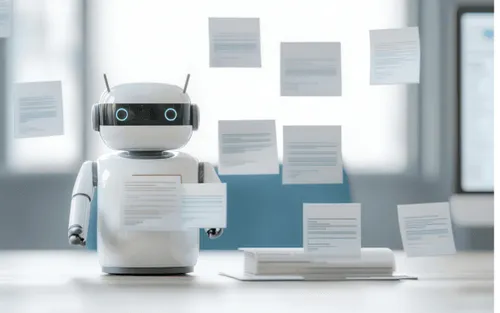We all want a dream job one that gives us comfort and a lot of money without stress and headaches; one that we enjoy doing and doesn’t really feel like work. Yes, we all want something like that. Who doesn’t?
However, the reality of the tech world is far from a dream or a movie. Getting your dream job isn’t impossible, but don’t you feel that chasing the perfect job actually keeps you from true professional growth?
Why the Dream Job Can Be a Trap
Looking for a dream job in technology is something many of us share, and there’s no reason to feel guilty about it. It’s natural to believe there’s a perfect place for us. But sometimes that idealized goal becomes a silent trap, and what once seemed like a path to happiness can turn into a prison of unmet expectations.
Unrealistic Expectations
We all dream of a peaceful job, free from stress or difficulties; where our efforts are always recognized, we make a lot of money, and tasks flow like a river. The truth is that every workplace has moments of heavy workload and calm, good days and bad. There will be periods when you feel at ease, and others when you can’t even sit down for a moment.
As a developer, one unrealistic expectation is thinking you won’t have days filled with meetings. For one reason or another, there will be times when you can’t work as you wish — and that’s completely normal and expected in many organizations.
Unrealistic expectations not only prepare us for disappointment, but also make us feel that something is wrong with us when we face challenges — when in reality, there will always be challenges to overcome no matter where we are.
Difficulty Adapting
When you cling too tightly to the idea of a perfect job, you close the door to new experiences and valuable learning opportunities for your professional growth. Imagine a job opening to develop the backend of a wholesale store, but you’re used to working only with retail businesses. The demands aren’t the same, and although the wholesale position may offer more money, you choose not to apply. Before even trying, you feel you won’t be able to adapt to the challenge.
The ability to adapt is what allows us to survive. It’s an aspect that goes beyond work and touches every part of our existence. Leaving the comfort zone can be scary, but staying stuck waiting for that “dream scenario” is far more damaging.
Professional Stagnation
It’s painful to admit that sometimes the pursuit of the ideal job leads to stagnation. Passing up great opportunities because they don’t fit what we think we should be doing often harms us more than it helps.
Think about it — you can’t become a senior developer without going through the junior and mid-level stages. You want to lead teams now, but first, you need to gain the necessary experience, and you’ll do that by:
- Mastering multiple languages and frameworks.
- Identifying and solving different types of bugs.
- Writing quality code and debugging errors.
- Meeting with investors, Project Managers, or Product Owners.
- Completing development cycles and finding ways to improve.
The fear of taking jobs that don’t meet all your short-, medium-, and long-term expectations can prevent you from absorbing the technical knowledge and experience that will ultimately propel you toward better and more fulfilling work conditions.
How to Avoid the Trap and Boost Your Growth
We all seek our dream job, but that endless pursuit can become an obstacle to true professional development if we don’t manage it properly and lose sight of what real work life is like.
At Crazy Imagine Software, our work philosophy drives us to participate in and transform business ideas into critical projects for leading companies around the world. That’s how we find challenging opportunities that truly help you grow.
Focus on Growth and Continuous Learning
Your professional growth doesn’t end when you reach a goal, finish a project, or change jobs. We never stop learning new things and discovering new tools — there will always be something unknown that helps us understand and improve our work.
The real key to avoiding the traps of the “dream job” is maintaining an open mindset dedicated to continuous learning. Don’t settle for what you already know and master. If there’s a new tool, methodology, or process to add to your skill set, why not explore it?
Today, AI has countless applications in programming — writing code, automating audits, solving doubts. Traditional development is no longer viable. We embrace that reality and apply it in every idea we transform.
In a field like technology, where innovation is the norm, this attitude is essential for survival. The only constant is change, and adapting to it — and its circumstances — is one of our greatest strengths.
Seeking Opportunities That Represent Us
Finding a job that resonates with your values and personal aspirations completely transforms your professional experience. It’s not just about the title or the salary it’s about feeling a genuine connection with what you do and how you contribute to the project or company.
This connection generates deeper motivation that goes beyond simply completing tasks for a paycheck. It’s about cultivating a sense of purpose in every line of code, every audit, every meeting.
Imagine you’re passionate about medical services because you come from a family of surgeons. Where would you rather develop software in a mining company, or in an organization focused on innovating healthcare and telemedicine through technology?
When you work on something that represents you, every challenge becomes an opportunity to demonstrate and strengthen your skills. You become part of something greater and more meaningful. That’s how we feel with every service and platform we handle.
The challenges of a new project resonate with our desire to understand, discover, apply best practices, and build a product that represents us and makes us proud.
Leaving the Comfort Zone
Leaving behind what we know brings fear and uncertainty. It’s completely natural to feel that way when stepping into the unknown, but it’s necessary to grow as both a person and a professional. Staying in a safe place where everything is familiar creates a false sense of stability and, in the long run, limits the expansion of your skills and vision of the job market.
Meanwhile, those who choose to embrace new challenges will move ahead, and you’ll be left behind. Accept new challenges, such as:
- Exploring new technologies.
- Taking on different responsibilities.
- Getting involved in unconventional projects.
- Switching industries from time to time.
Working in startups brings all these together. Being part of small teams means continuous collaboration where everyone learns a bit of everything. On Monday, you might be working in development; Tuesday, in UX; Wednesday, as SEO and so on. That’s our daily life.
Being part of different markets means letting go of a set of rules, frameworks, and standards to adopt entirely new ones. It’s challenging, but exciting and a crucial factor for evolution.









